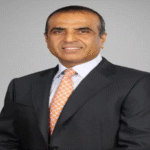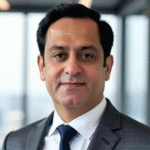Literacy as a Human Right: Unlocking the Path to Global Equity and Development

‘Can I learn to read at this age?’ Sufia*, aged about 40, asked a simple yet deep question as we stood next to her bamboo-and-plastic shack by the side of a railway track. She didn’t have the opportunity to go to school as a child. But now, encouraged by her children’s progress in our literacy classes, she plucked up the courage to try to learn to read.
In our text-saturated world, literacy stands as a fundamental human right and a gateway to personal and societal progress. Human Rights are often thought of as ‘negative freedoms’, that is, freedom from various wrongs. The Indian constitution enshrines several such rights: freedom from exploitation, freedom from censorship, freedom from religious suppression.
Yet our far-sighted founding fathers also enshrined a crucial ‘positive freedom’: the right to education. This is because without this foundational capability, we cannot truly exercise many of other rights. If Sufia can’t read and write, her right to freedom of expression remains hollow. If she lacks an education and is unemployable, her right to freedom from exploitation is unlikely to be realised.
India has over 250 million illiterate adults – by far the largest number globally, more than the next ten countries combined. Within our nation, the right to read is realised is distributed very unevenly, with large geographical and gender disparities. And despite improvements in enrolment rates, millions of children are attending school but still lack foundational skills of literacy and numeracy. The NIPUN Bharat Initiative, aimed at ensuring all children attain key literacy and numeracy skills by Grade 3 by 2026-27, represents a critical step towards addressing this issue. Whether the policy is translated into practice, though, depends on pedagogical transformation.
India’s education system has long relied on rote memorization. NEP 2020 calls for a shift to student-centered, activity-based learning, but many teachers still rely on outdated methods. The Accelerating Learning for All (ALfA) program addresses this by using paired learning and interactive techniques. Instead of memorizing letters, ALfA engages students with visual aids and context-based methods from the very start. This approach aligns with NEP’s vision of a dynamic learning environment and has proven effective in various global contexts.
India’s experience underscores a global challenge. A recent World Bank report found that 70% of 10-year-olds in Low- and Middle-Income Countries could not read a simple text with understanding. Around the world, there is growing recognition that we face a learning crisis. Addressing this is an urgent priority and a prerequisite for global development.
Linguistic diversity remains a challenge in many parts of the world. Students often speak different languages at home than those used in school. ALfA addresses this by offering resources in 30 languages, accommodating diverse linguistic needs and facilitating more effective learning in students’ mother tongues.
In the remote Amazonian schools, in partnership with ArcaBeta NGO, ALfA has helped children in isolated regions access quality education. In downtown Chicago, Literacy Chicago has utilized ALfA to support local literacy efforts, proving its adaptability to different urban environments. Meanwhile, in the Maldives, the Ministry of Education is using ALfA in primary schools, with UNICEF support.
Literacy is more than just an individual skill; it is a fundamental human right that drives social and economic development. The NIPUN Bharat Initiative has the potential to revolutionize foundational learning and empower millions. By addressing pedagogical challenges and providing high quality literacy materials in multiple languages, we can ensure these policies are translated into practice.
The question is not whether we can achieve the goal of universal literacy – we clearly have the tools like ALfA to do so. Rather, the question is whether we will rightly prioritise literacy, given its crucial importance to global equity and development. Every person, from women like Sufia in dense slums, to children in the remotest corners of the world, deserves no less than the right to read.
Author: Dr. Sunita Gandhi – Founder, DEVI Sansthan
Disclaimer: The views expressed in this article are solely those of the author and do not necessarily reflect the opinions or policies of ObserveNow Media. The author is solely responsible for ensuring the accuracy, completeness, and validity of the information presented, encouraging readers to independently verify and seek professional advice if needed.
















